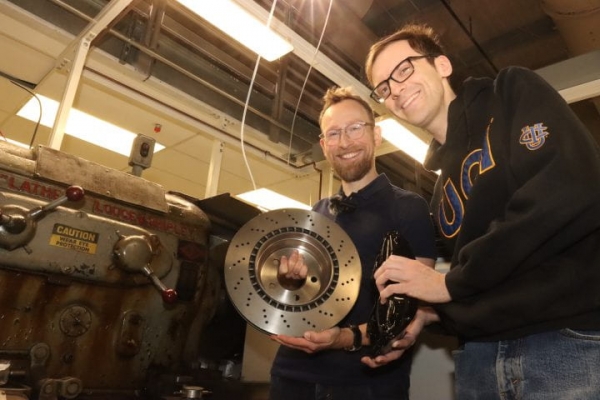Scientists know relatively little about particles released into the air when a vehicle driver brakes, though evidence suggests those particles may be more harmful to health than particles exiting the tailpipe.
Scientists know relatively little about particles released into the air when a vehicle driver brakes, though evidence suggests those particles may be more harmful to health than particles exiting the tailpipe.
In a new study in Proceedings of the National Academy of Sciences, University of California, Irvine researchers show how most of these particles emitted during light braking carry an electric charge – something that could potentially be exploited to help reduce air pollution from vehicles.
“We found that up to 80% of aerosol particles emitted from braking are electrically charged, and that many of them are in fact highly charged,” saidAdam Thomas, a doctoral candidate in the lab of Jim Smith, professor of chemistry, who led the study alongside UCI postdoctoral researcher Paulus Bauer.
Read more at: University of California - Irvine
Lead study authors Adam Thomas (right) and Paulus Bauer (left) hold a brake rotor and caliper next to the lathe they and their UCI team used to measure car brake emissions. (Photo Credit: Lucas Van Wyk Joel / UCI)




